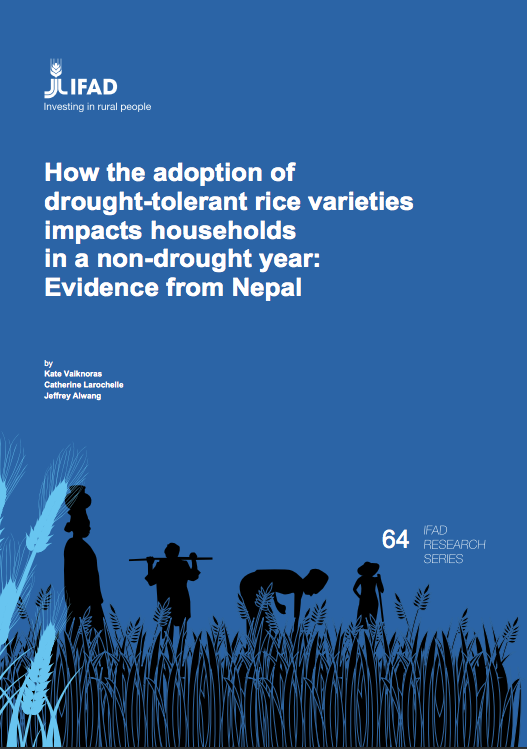Stress-tolerant rice varieties (STRVs) are bred to be high yielding and tolerant to climate shocks such as drought. In Nepal, several drought-tolerant STRVs have been released and widely adopted. This paper estimates the impacts of the adoption of STRVs on first- and higher-order household outcomes in a non-drought year. It controls for selection bias using correlated random effects models to eliminate unobserved plot and household-level heterogeneity. STRVs have a higher yield, a lower yield variance and a shorter growing duration than traditional landrace varieties. In addition, households apply more early-season chemical fertilizer and land preparation labour to plots planted to STRVs compared to landraces. This indicates that the first-order impacts of the adoption of STRVs induce behavioural changes that help to modernize agricultural practices. Finally, this study conducts a randomized experiment in which half of the sampled households provided additional detail on their agricultural inputs.
Back to Library
How the adoption of drought-tolerant rice varieties impacts households in a non-drought year: Evidence from Nepal

Published by:
Online Location
https://www.ifad.org/en/web/knowledge/publication/asset/42216447
Publication date
12/01/2021
Number of Pages
40
Language:
English
Type of Publication:
Studies
Focus Region:
Asia and the Pacific
Global
Focus Topic:
Land / Water / Resource Management
Climate / Weather / Environment
Type of Risk:
Weather & Climate related
Type of Risk Managment Option:
Risk reduction/mitigation
Commodity:
Crops